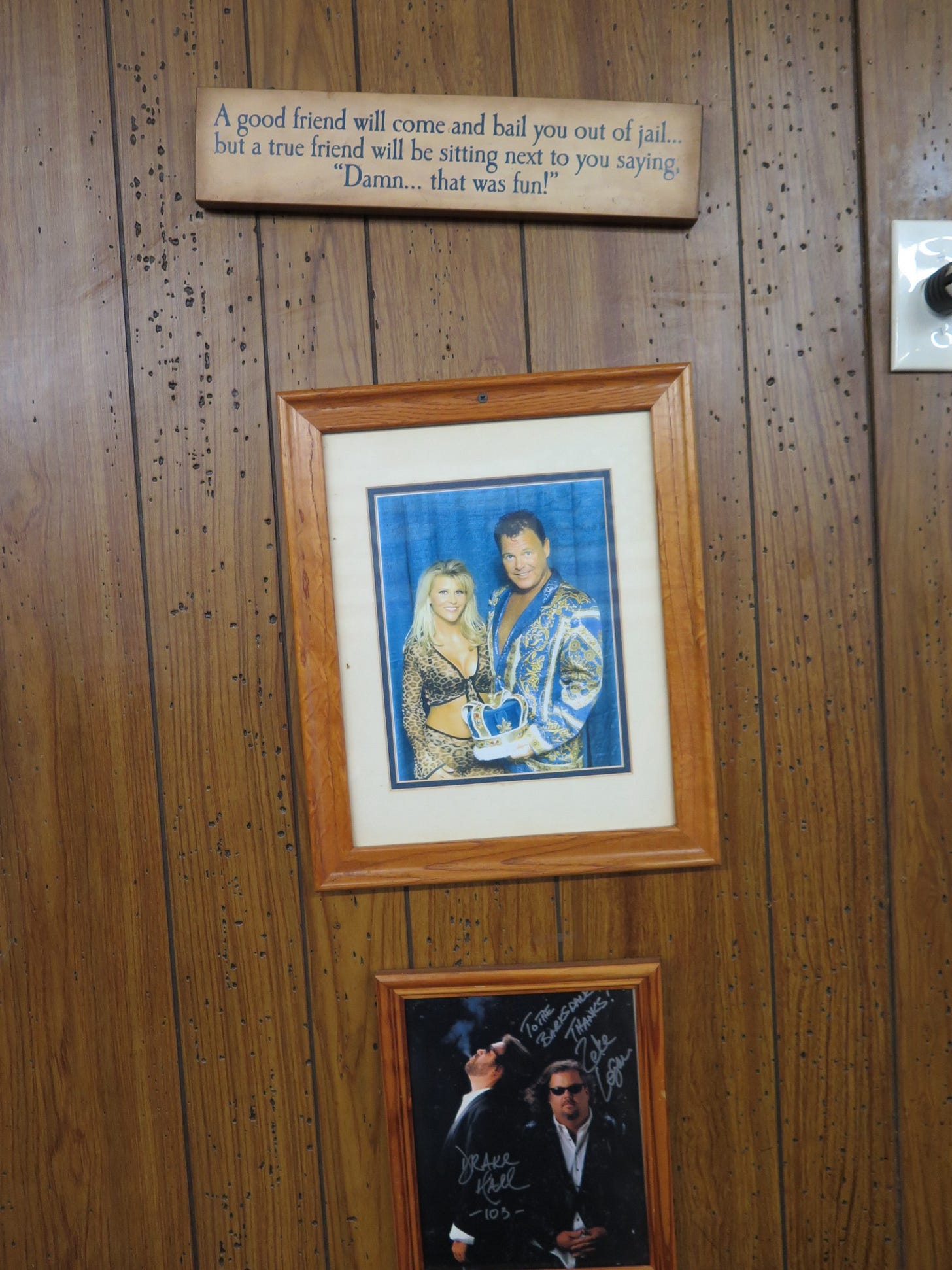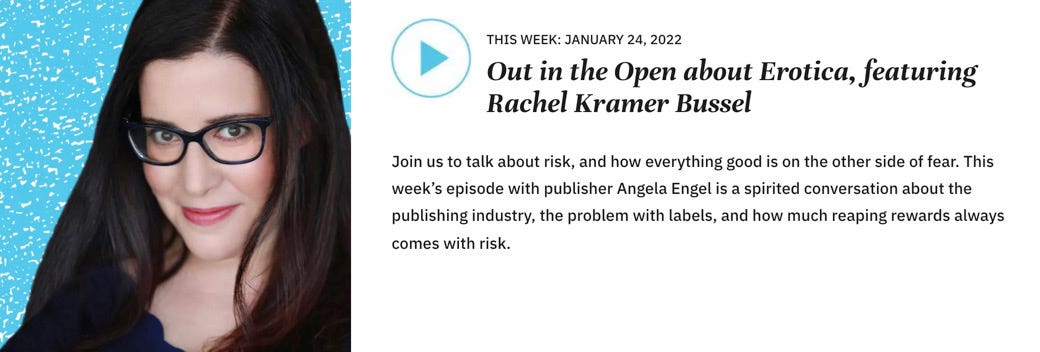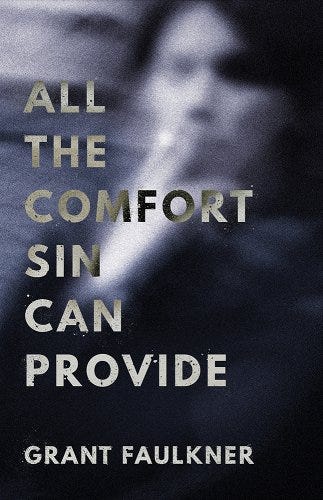Because prison shoes
If I remember right, he told me he made the shoes himself. Indeed, there was no branding on them. Not a tag, not a logo, but they were as sturdy as any shoe I’d ever worn. The stitching tight, precise.
I was walking by the corner of Valencia and 16th Street in San Francisco in 1989, probably on my way to the Macondo Cafe, where I liked to write and read, and he waved at me, smiling, joyful, holding the shoes in his hands.
“Just $10. Straight from prison,” he said.
He told me he’d made them in prison just before he got out. He told me they’d last a lifetime. He was proud of those shoes.
The soles were hard, the leather stiff and shiny. I liked their workmanlike style. They were my size, and just $10, so I bought them.
I walked all around the city in those shoes. I waited tables in them. I went to punk rock shows. They were punishing shoes, though, as if designed to hurt, without a notion of comfort. They were like walking on concrete with concrete on my feet. Even the supple feet of my youth flinched when I reached for those shoes.
I recently found them at the back of my closet. I’ve worn them less and less over the years. I doubt I’ve worn them at all in the last 10 years. Maybe longer. But I’ve strangely kept them even as I’ve discarded many other things.
I took them to Goodwill last week with bags of other stuff. Living in a small house enforces a relentlessly severe policy of no extras. Objects have to earn their keep. But just as I was about to drop them into the donation bin, I paused.
I remembered wearing the shoes to a party once, and a man waiting in line with me to get a beer from the keg looked me up and down with extra scrutiny. “Those are prison shoes,” he finally said. “I know because my brother always gives me his pair when he gets out.”
I fixed on the phrase, “always gives me his pair when he gets out”—a dubious family tradition.
“Were you in prison?” he asked in a “there’s no way you were in prison” tone.
Not many people in this world can say they own a pair of legit prison shoes. To give them away suddenly seemed like throwing away my 20s, like throwing out the days I seemed to always be walking to a cafe to write and talking to strangers on the street.
I’m fatally nostalgic. I kept my prison shoes, which yearn to do some dancing in some sweaty bar where the music is too loud and the bathroom is a temple to decades of graffiti and stickers.
Because prison shoes can lead you to exciting places.
Because impermanence
Somebody asked the Dalai Lama to describe Buddhism in one word. “Impermanence,” he said.
After almost getting rid of my prison shoes, I started to remember other dear objects I’ve donated to Goodwill. Specifically, a denim jacket with flashy 80s lapels and sleeves that zipped off. I bought it the first time I went to France when I was 18.
I gave it away with a pair of equally flashy royal blue shoes I bought on that same trip because I knew I’d never wear them again. Practice the “art of losing,” as Elizabeth Bishop would say. I wonder about getting rid of them, though.
It’s good to ponder impermanence. I think about this with art all of the time. Deleting sentences, paragraphs, chapters. Deciding to leave behind whole works and never look at them again.
I rarely miss any of it. Letting things go tends to be a good thing. A de-cluttered, clear mind is a mind ready to create (not cling). It all passes anyway, even the biggest and the best of it, and once you truly realize the impermanence of it all, then you can ironically enjoy it more.
Because a quote
“What I have been thinking about, lately, is bewilderment as a way of entering the day as much as the work. Bewilderment as a poetics and an ethics.”
~ Fanny Howe, in “Bewilderment”
Bewilderment is curiosity. Bewilderment is wonder. Bewilderment is humility. Let’s get bewildered.
Because I love small things in small containers
A 100-word essay on writing 100-word stories…
Even God knows a story can’t be told in its entirety. A profligacy of words disorients. Rococo flourishes end as fulsome decadence. It is absence that spawns the fundamental mysteries of life.
Subtle gestures, dashing glances, unspoken words whisper through our days, a beguiling puzzle, seduction. No explanations, please. Listing a dish’s ingredients minimizes its taste. Keen images pique the palate best. We drift, rush, falter, and flounce, following scents. A flicker of light appears, a thunderclap in the distance. Illumination, short-lived, then gone, or so it seems.
We can only touch nuances and wonder. And then, that final breath.
Because a haiku
Astral candle— for $24.99 you'd think there'd be more of a glow
Because little stories
Except this story is big. And kind of wild. And I’m so happy it was recognized as one of the best short short short stories of 2021.
Read Lucy Goldring’s 100-word story Calling at: Pharmacy, Florist, and Off-Licence Only, which we were so happy to publish in 100 Word Story.
Because prompts take us to new places
Every photo holds a story. Use this photo as a prompt, as a random catalyst for a new story.
Write a story about this photo in less than 300 words and share it.
Because my podcast
Most (maybe all) writers aren’t truly confident when it comes to writing sex scenes. I hope this episode of Write-minded with Rachel Kramer, a writer, editor, and publisher of erotica, will remedy that.
All the Comfort Sin Can Provide
If you like this newsletter, please consider checking out my recently released collection of short stories, All the Comfort Sin Can Provide.
Lidia Yuknavitch said:
“Somewhere between sinister and gleeful the characters in Grant Faulkner’s story collection All the Comfort Sin Can Provide blow open pleasure—guilty pleasure, unapologetic pleasure, accidental pleasure, repressed pleasure.”
Grant Faulkner is executive director of National Novel Writing Month and the co-founder of 100 Word Story. He’s the author of Pep Talks for Writers: 52 Insights and Actions to Boost Your Creative Mojo and the co-host of the podcast Write-minded. His essays on creative writing have appeared in The New York Times, Poets & Writers, Lit Hub, Writer’s Digest, and The Writer.
For more, go to grantfaulkner.com, or follow him on Twitter at @grantfaulkner.








Great story. I like the up-and-down the guy on the keg line gives you.
I didn't know prison shoes were a thing. Fascinating how objects can be charged with meaning or emotion due to their provenance and their history. I've never been one to let go of old shoes easily in general, much less such a storied pair, so this is something I can relate to.